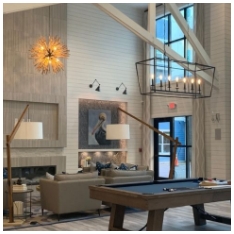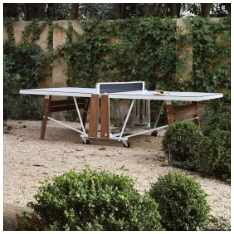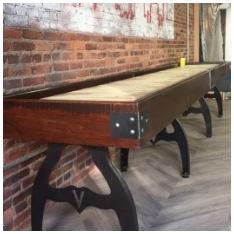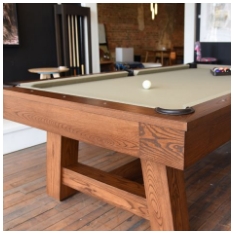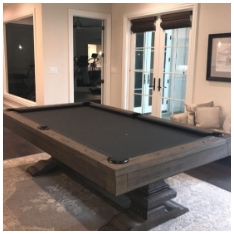When it comes to pool and billiards, precision is everything. While factors like cue quality, ball condition, and player skill are often highlighted, one element that often goes unnoticed is the playing surface itself. The importance of a level playing surface in pool and billiard tables cannot be overstated, as it directly affects the quality, fairness, and enjoyment of the game. In this article, we will explore why a level surface matters, how it influences gameplay, and practical tips for maintaining an even table.
Why a Level Playing Surface Matters
A pool or billiard table is designed to provide a controlled environment where skill and strategy determine outcomes. If the surface is uneven, even the most experienced players will struggle to predict ball movements accurately.
Consistency in Gameplay
A level table ensures that balls roll true and predictable. Uneven surfaces can cause balls to drift unexpectedly, leading to frustrating and inconsistent results. By maintaining a level playing surface, players can develop their skills with confidence, knowing that outcomes reflect their abilities rather than imperfections in the table.
![PINPOINT Pool Table [7ft]](https://nwscdn.com/media/wysiwyg/3kf/professional-pool-table.jpg)
Fairness in Competition
For competitive play, the importance of a level playing surface in pool and billiard tables becomes even more critical. Tournaments require tables to meet strict standards to guarantee fairness. An unlevel table can favor certain shots or positions, giving an unfair advantage to some players. Ensuring the surface is level maintains a neutral playing field where talent alone decides the game.
Preventing Equipment Damage
Playing on an uneven surface can also affect the longevity of the table and balls. Uneven pressure on pockets, cushions, and rails can lead to premature wear or damage. A level table helps distribute weight evenly, protecting both the table and accessories over time.
How an Uneven Surface Affects Gameplay
The physics of billiards are precise. Even a slight tilt in the table can drastically alter ball paths. Understanding these effects highlights why maintaining a level surface is essential.
Ball Roll and Speed
On an unlevel table, balls may accelerate or decelerate unexpectedly depending on the slope. This makes calculating shots challenging and reduces the predictability needed for advanced strategies such as bank shots, combinations, and positional play.
Angle Accuracy
Angles are fundamental in billiards. Players rely on geometric calculations to plan shots. Any unevenness can mislead players about angles and distances, resulting in missed shots and reduced performance.
Player Frustration
Repeated missed shots caused by an uneven surface can affect a player’s confidence and enjoyment. Even casual players may find the game less satisfying if the table does not perform as expected. Maintaining a level surface ensures a fair, enjoyable, and challenging experience.
Tips for Ensuring a Level Playing Surface
Maintaining a level pool or billiard table is not complicated, but it requires attention and regular checks. Here are some practical tips:
Use a Spirit Level
Regularly check the table using a high-quality spirit level. Place it at different points on the surface to ensure consistency. Any deviations can indicate that adjustments are needed.
Adjust Table Legs
Most modern pool tables come with adjustable legs. Use these to correct minor height differences and ensure the table sits flat on the floor. Check leg stability after adjustments to prevent wobbling during play.
Consider the Floor Surface
Uneven floors can affect the table’s level even if the table itself is perfectly designed. If possible, place the table on a solid, flat surface or use shims to compensate for small irregularities.
Regular Maintenance
Routine maintenance of the table, including checking the slate bed, cushions, and pockets, helps preserve the level surface. Over time, slates may shift slightly or cushions may compress, requiring minor adjustments to restore balance.
Conclusion
The importance of a level playing surface in pool and billiard tables is clear for both casual and competitive players. A level table ensures consistent gameplay, fair competition, and prolongs the life of the equipment. Whether you are practicing at home or preparing for a tournament, investing time in leveling your table pays off in enjoyment, skill improvement, and accuracy.
By understanding the impact of an uneven surface and following simple maintenance tips, you can maintain a high-quality playing environment. Ultimately, a level pool or billiard table allows players to focus on what truly matters: precision, strategy, and the enjoyment of the game.

